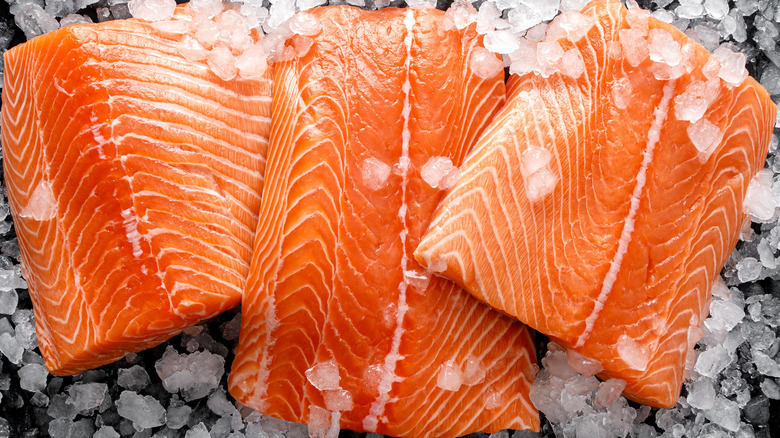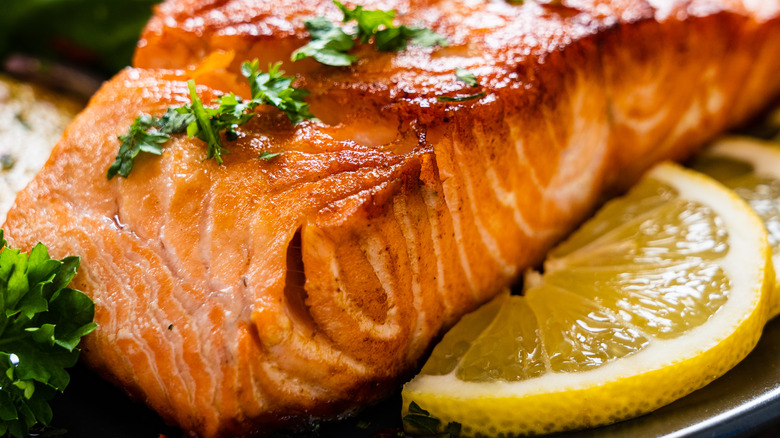You Should Start Eating More Salmon. Here's Why
Although fish are often perceived as being tiny slivers of shiny scales, some people are simply terrified of them. The official term for this is ichthyophobia, which The Free Dictionary defines succinctly as "an abnormal fear of fish."
It's not difficult to understand why the condition exists — fish can be slimy and smelly, have gnawing teeth, and are prone to darting out of water whenever they feel like it. Plus, those piercing eyes could haunt even the toughest ghost.
Despite their unattractiveness, fish have a number of health benefits when eaten by humans. This is especially true for salmon. According to BBC Good Food, salmon is an oily fish that is considered to be a helpful part of a healthy diet because it is packed with useful nutrition, including protein, vitamin D, and omega-3 fatty acids. But how does salmon benefit us, and which type of salmon is the healthiest?
Free-swimming salmon are more nutritious than farmed fish
Salmon is a vital source of omega-3 (a fatty acid that cannot be produced by humans), which helps to keep the heart and brain healthy, as well as assisting the balance of joints, hormones, and skin, explains BBC Good Food. Additionally, the high protein levels in salmon aid bone and muscle health, and the fish also boasts anti-inflammatory benefits thought to reduce the effects of cancer and diabetes. Salmon also contains ample amounts of an antioxidant called astaxanthin, which is associated with reducing the risk of heart disease.
As for the healthiest type of salmon, Cleveland Clinic details that wild salmon has less fat and calories than farmed salmon, as well as having a reduced risk of containing contaminants and disease-causing pollutants. Typically, farmed salmon is the Atlantic variety, whereas Pacific salmon is fished from the wild.
Of course, a major deciding factor on which type of salmon to choose is cost. According to data compiled by Frugal Answers, the average price of supermarket salmon is $8 per pound. Albertson's Atlantic salmon achieves the cheapest price of $6.99, while Costco's king salmon (a variety of Pacific salmon, notes Cleveland Clinic) weighs in at $19.99.

